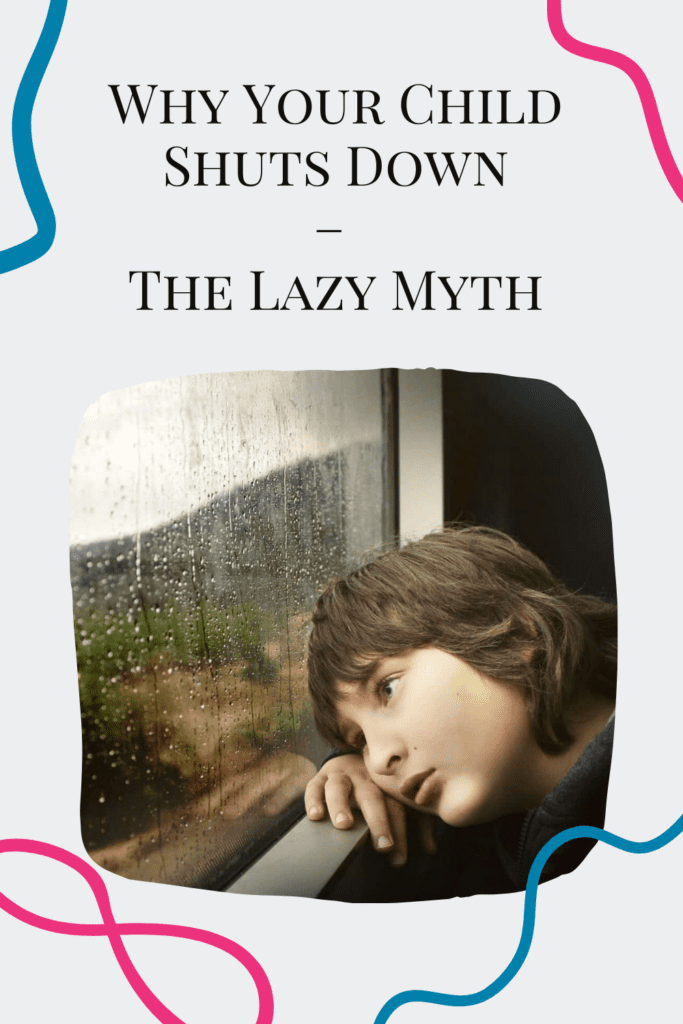A couple weeks ago I was talking to a mom who was considering that maybe her son did have some kind of learning or behaviour challenge. “But I don’t know,” she said “Maybe I’m just making excuses. I am beginning to think that maybe he is just plain lazy and defiant.”
Kids with APD are often accused of being lazy, defiant or that they just need to try harder and focus more when in fact they are working incredibly hard to pay attention, understand and focus.
Walk a Minute in Their Shoes
Ever been to a concert or an event where the music is so loud you can hardly hear what the person next to you wants to say? I have – plenty of times. We are practically yelling in each other’s ears and we’re still not fully hearing what the other is saying. If you’ve had this experience you know that half of the time you are ‘filling in the blanks’ for half the conversation because you really didn’t hear everything.
You also know that it is mentally exhausting to try and focus and understand what the person is saying. It can be mildly annoying and if it continues long enough it can make you downright cranky to be straining so much and to be getting so little out of the conversation.
This happened to me a several years ago at a Tragically Hip concert. So you know what I did? I just got to a point where I didn’t bother talking because it took too much energy to speak and listen.
Why Kids with Auditory Processing Challenges Shut Down
This is almost exactly what kids with APD are experiencing to varying degrees of severity. Just as the noise at the concert is not the background noise – it is the dominant noise so too is the back ground noise in their life. They have to strain to listen despite it.
This is known as Auditory-Figure Ground problems and Auditory Attention problems.
This is the same reason why these kids can have poor focus and difficulty paying attention. Imagine you are at that concert all day, every day.
Why Auditory Processing Disorder can be Misdiagnosed as ADHD
Auditory Processing Disorder is often mistaken for ADHD because a child may seem easily distracted, or have a hard time focusing on something. We assume a child’s inability to follow directions from either a parent or a teacher has to do with poor focus, disinterest or even defiance rather than APD. It can also be assumed that a child has SPD because they become overwhelmed with too much noise.
People mistakenly assume that a child is an auditory learner because he or she loves and understands stories best when they are oral. In order to process and understand a story that is told orally a person must use the visual cortex in their brain. Dianne Craft refers to this as ‘making a movie in their head’ which is in fact a right brained activity.
A Left-Brain Weakness?
The right side of the brain develops first and is often the side that is most active in children with learning and behaviour difficulties. The auditory cortex is actually on the left side of the brain – the region that tends to be underdeveloped or have weak connections among these kids.
Exercises the stimulate the left hemisphere of the brain, as well as addressing the other bio-chemical factors that compromise strong auditory processing like gut health, nutritional deficiencies and even addressing damage caused by chronic ear infections all need to be addressed.


